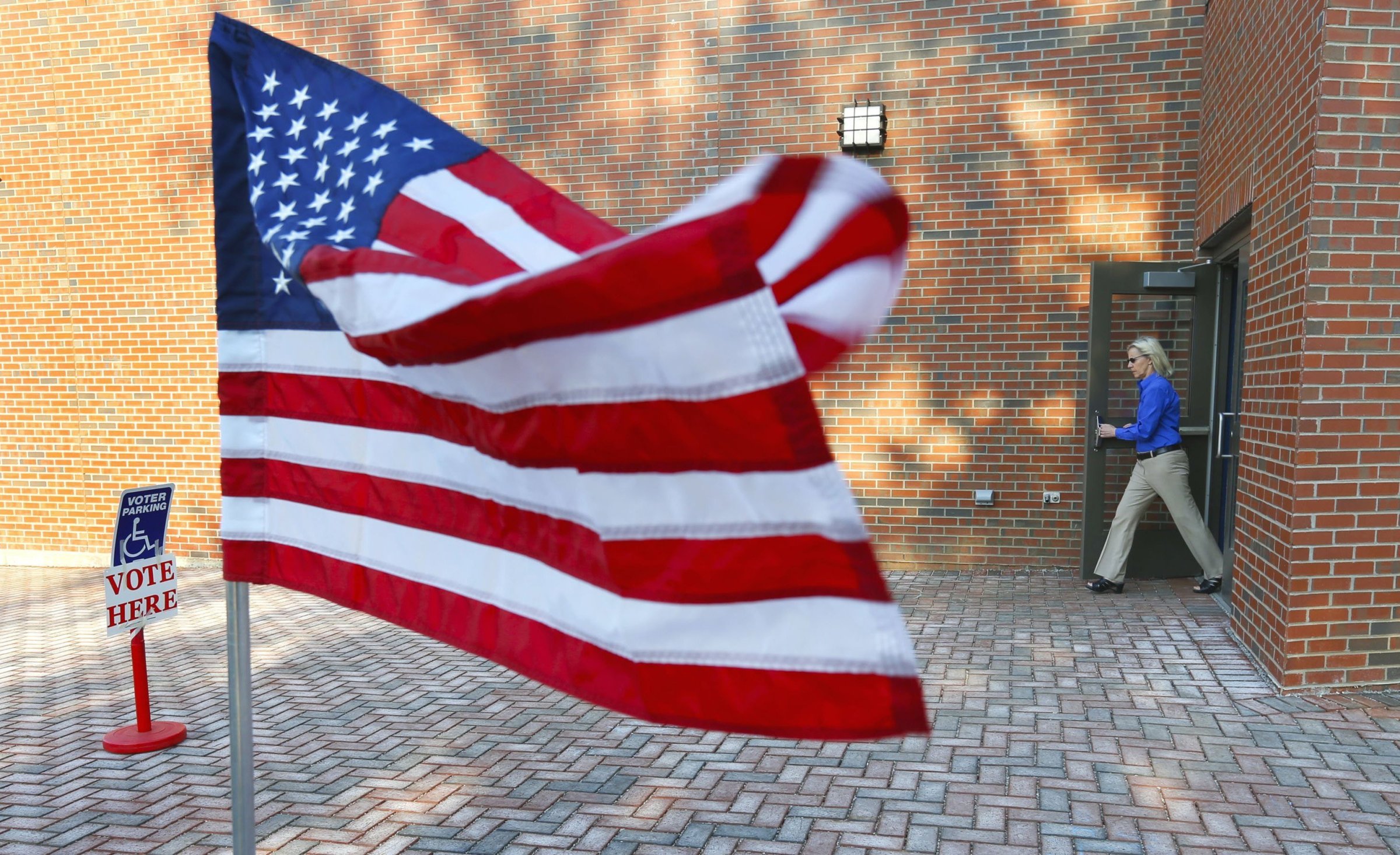
A new national survey of 10,000 Americans tells you what probably already thought: “Republicans and Democrats are more divided along ideological lines — and partisan antipathy is deeper and more extensive — than at any point in the last two decades.”
Pollsters at Pew Research report that “92% of Republicans are to the right of the median Democrat, and 94% of Democrats are to the left of the median Republican.” And the percentage of people who hold “consistently” conservative or liberal opinions has doubled over the past two decades, to 21 percent.
Yet such rank partisanship and ideological extremism tell an incomplete and ultimately misleading story of contemporary America. Yes, those who identify themselves as members of Team Red or Team Blue are more at one another’s throats than ever (just check out C-SPAN if you don’t believe me). But an increasing number of Americans are calling themselves independents, and there are huge and growing areas of consensus developing not just on once-controversial social issues but also on the proper role of government in everyday life.
Gallup reports that in 2013, 42 percent of Americans identified themselves as politically independent, up 10 points from 1988. Over the same period, those willing to call themselves Democrats dropped from 36 percent to 31 percent and those calling themselves Republican fell from 30 percent to 25 percent. While it’s true that self-described independents often lean toward either the Democrats or Republicans, the number of “pure” independents has been growing for more than a decade and stands above 10 percent.
And there’s no question that people are leaving the major parties in droves. Between the 2008 and 2012 elections, USA Today reports, more than 2.5 million voters left the Democrats and the Republicans. “Registered Democrats declined in 25 of the 28 states that register voters by party,” according to USA Today’s tally. “Republicans dipped in 21 states, while independents increased in 18 states.” As politics gets more viciously partisan, more Americans are saying no thanks.
Then there are the areas in which consensus already exists or is growing rapidly. As political scientist Morris Fiorina explains in his book Culture War? The Myth of a Polarized America, Americans actually generally agree on many topics that inflame political partisans. Consider abortion, gay marriage, gun control, and pot legalization. Research from Pew itself shows only “modest generational differences in views of abortion gun control.” Fifty-five percent of Americans now support same-sex marriage (up from just 42 percent in 2004) and 58 percent support legalizing pot (up from 34 percent a decade ago). When it comes to Congress, few topics seem to engender more rage than immigration, but it turns out that 71 percent of voters — including 64 percent of Republicans — support comprehensive immigration reform.
When it comes to larger questions of the role of government in everyday life, for the past four years about 55 percent of Americans believe the “government is doing too much” and only 38 percent believe it should be doing more. That generally skeptical view of government is borne out in the record high level of people — a whopping 72 percent — who agree that government poses a bigger threat to our future than big business (21 percent) or big labor (5 percent).
Fiorina’s Culture War? helps to explain how politics can be getting more polarized even as Americans seem to agree on many, maybe most, big issues. “The answer,” he writes, “is that while voter positions have not polarized, their choices have.” The ways that the Democratic and Republican parties select their representatives and build their platforms is more fully in the hands of partisans who push more extreme candidates and policies. That means that the typical voter is faced not just with the lesser of two evils but two major-party choices that don’t really represent her beliefs.
Partisan and ideological polarization is a sour note in an America that is increasingly singing in harmony about things such as immigration, the drug war, marriage equality, and more. No wonder, then, that more and more of us refuse to say we’re Republican or Democrat, or to trust Washington, D.C. — that hotbed of the worst sort of to-the-death politics — with our lives and our futures.
More Must-Reads from TIME
- Donald Trump Is TIME's 2024 Person of the Year
- Why We Chose Trump as Person of the Year
- Is Intermittent Fasting Good or Bad for You?
- The 100 Must-Read Books of 2024
- The 20 Best Christmas TV Episodes
- Column: If Optimism Feels Ridiculous Now, Try Hope
- The Future of Climate Action Is Trade Policy
- Merle Bombardieri Is Helping People Make the Baby Decision
Contact us at letters@time.com